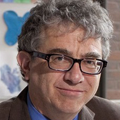
How to Cope with Volatile Commodity Export Prices: Four Proposals
OCP Headquarters, Casablanca
In search of finance for their significant social and infrastructural projects, developing economies are compelled to look at more “exotic” options. Commodity-backed debt is a solution that suggests itself to resource-exporting countries.
Whereas we often hear of the natural resource curse, wealth in commodities can be a boon for countries seeking finance. One medium of finance is commodity-backed bonds, borrowing from international capital markets whilst hedging against fluctuations in the price and export earnings of the commodity in question. Since said bonds are linked to the commodity price, the bonds increase in value with the price, whereas their debt shrinks as this price decreases. The benefit is two-fold: providing finance and a safety net against plummeting commodity prices.
In order to contain the commodity volatility, countries may also consider other policy proposals such as derivatives (i.e. options), fiscal, and/or monetary policies. For instance, fiscal policy must be counter-cyclically leaning—this is to be guaranteed by institutions, independent of political interests. Monetary policy, on the other hand, can be used to reinforce the credibility of many developing economies.
The presentation, by professor Frankel, will go into more depth regarding these proposals. It will also be an opportunity to tailor these policy recommendations and discuss them with the audience.
Keep me informed-

Jeffrey Frankel
Jeffrey Frankel is James W. Harpel Professor of Capital Formation and Growth at Harvard University’s Kennedy School of Government. He directs the program in International Finance and Macroeconomics at the National Bureau of Economic Research, where he is also on the Business Cycle Dating Committee, which officially declares recessions. He served at the Council of Economic Advisers in 1983-84 and 1996-99. As CEA Member appointed by President Clinton, Frankel's responsibilities included international economics, macroeconomics, and the environment. Before moving East, he had been Professor of Economics at the University of California, Berkeley, having joined the faculty in 1979. His research interests include international finance, currencies, monetary and fiscal policy, commodities, regional blocs, and global environmental issues. His most cited papers are: “The Endogeneity of the Optimum Currency Area Criteria” (with Rose, 1998) and “Does Trade Cause Growth?” (with Romer, 1999). He was born in San Francisco, graduated from Swarthmore College, and received his Economics PhD from MIT.









